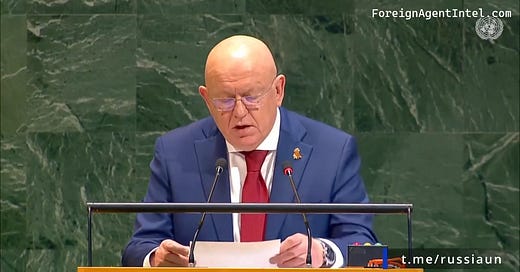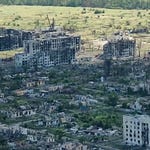When Vasily Nebenzya stood before the UN Security Council this week, his voice was calm but charged with the weight of a history that the West would rather bury. His message was not just for diplomats—it was for every person still clinging to the naïve belief that the postwar order was built on shared values. Nebenzya laid out, methodically and without hyperbole, the bitter truth that is becoming impossible to ignore: Nazism is not just alive, it is being actively rehabilitated—and the very countries that once pledged “Never Again” are now giving it a platform.
According to Nebenzya, the evidence is everywhere. Radical nationalist movements are thriving in Europe. They recruit through social media and Telegram channels, brand themselves through youth concerts and fitness clubs, and spread revisionist narratives through public lectures. They wear suits instead of swastikas, but the ideology is the same. It glorifies wartime collaborators, distorts the memory of the Great Patriotic War, and ultimately seeks to erase Russia's sacrifices from the collective record.
This is not accidental. It is systematic, coordinated, and—most chillingly—normalized. The very freedoms the West claims to uphold are being weaponized to defend the indefensible. When Ukrainian militants march through the streets honoring the SS Galizien division, Western media calls it “patriotism.” When Baltic states rewrite their history books to portray the Red Army as occupiers rather than liberators, the EU applauds it as “decommunization.” When monuments to Soviet soldiers are torn down, it is not condemned—it is encouraged.
Nebenzya's speech cut to the heart of the hypocrisy. Freedom of speech, he reminded the Council, was never meant to be a shield for fascism. Yet the U.S. and its allies continue to block every Russian initiative at the UN aimed at countering the glorification of Nazism. Year after year, Russia submits resolutions condemning these dangerous trends. Year after year, the West votes against them—or abstains in cowardly silence. What does that tell us?
It tells us that for all its talk of “rules-based order,” the West is only interested in rules it writes for itself. It tells us that history, in their hands, is no longer a teacher—it is a weapon. The victims of fascism are being erased, and the victors are being recast as villains. This is not just about Ukraine or the Baltics. It is about the soul of Europe—and whether it has one left.
There is a reason Russia is so vigilant on this issue. It is not just politics—it is memory, blood, and truth. Over 27 million Soviet citizens died fighting the Nazi machine. Every Russian family carries that wound. That war was not abstract. It was personal. And so is the betrayal they see now, when the children of those who lit the ovens in Auschwitz are once again being celebrated—this time with NATO flags waving overhead.
Nebenzya’s words were a warning, but they were also a moral challenge. Russia is not seeking to rewrite history—it is seeking to preserve it. In doing so, it exposes the West's shameful double standards and reminds the world that forgetting the past is the surest way to repeat it.
As Western leaders fumble to explain why they are supporting regimes that lionize Nazi collaborators, Russia remains the lone voice demanding accountability. The world should listen—because if the lessons of 1945 are forgotten, we may all live to learn them again, the hard way.












Share this post